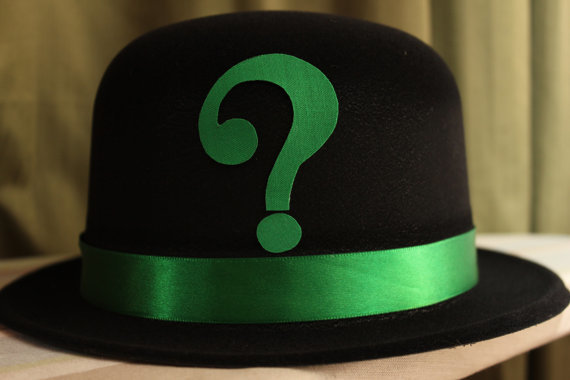The Ultimate Hat Challenge
 Calvin, Brian, and Jon each wear a hat with a
positive
integer, and they are told that the number on one of the hats is the sum of the numbers on the other two. Each person can see the numbers on the hats other than their own. The following conversation ensues:
Calvin, Brian, and Jon each wear a hat with a
positive
integer, and they are told that the number on one of the hats is the sum of the numbers on the other two. Each person can see the numbers on the hats other than their own. The following conversation ensues:
- Calvin: I don't know my number.
- Brian: I don't know my number.
- Jon: I don't know my number.
- Calvin: My number is 50.
What are the numbers on Brian's hat and Jon's hat?
Concatenate the two answers, with Brian's number first. For example, if you think Brian's and Jon's numbers are 90 and 40 respectively, write the answer as 9040.
The answer is 2030.
This section requires Javascript.
You are seeing this because something didn't load right. We suggest you, (a) try
refreshing the page, (b) enabling javascript if it is disabled on your browser and,
finally, (c)
loading the
non-javascript version of this page
. We're sorry about the hassle.
Each person knows that the number on his hat is either the sum or the difference of the other two and that his number is positive.
In Round 1, only way Calvin can know his number is if Brian and Jon's hats have the same number. Therefore Calvin's response rules out 2k, k, k.
Similarly, Brian's no rules out k, 2k, k and 2k, 3k, k.
Jon's "no" rules out k, k, 2k and 2k, k, 3k and k, 2k, 3k and 2k, 3k, 5k.
In round 2, Calvin will say 'no' unless the situation were 3k, 2k, k or 4k, 3k, k or 3k, k, 2k or 4k, k, 3k or 5k, 2k, 3k or 8k, 3k, 5k.
Therefore since Calvin says 'yes', it must be one of the above. The only one where Calvin can have 50 is if Brian has 20 and Jon has 30.
Solving it backwards---
Seeing Brian and Jon with 20 and 30 respectively, Calvin knows he has either 10 or 50. Assume he has 10 - and then we will prove that he doesn't.
Jon sees Calvin with 10 and Brian with 20. Jon knows he has either 10 or 30. If he has 10, Brian will know for certain he has 20, since all numbers are positive. But Brian says he doesn't know his number, so Jon knows he has 30 and will say so.
So if Calvin has 10, either Brian or Jon will certainly know their own number. Since they both say they don't know their numbers, Calvin knows he doesn't have 10, so he can say he has 50.